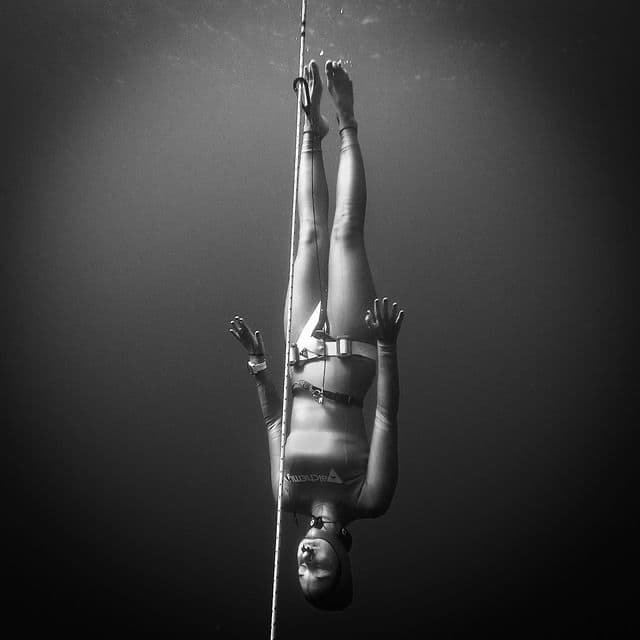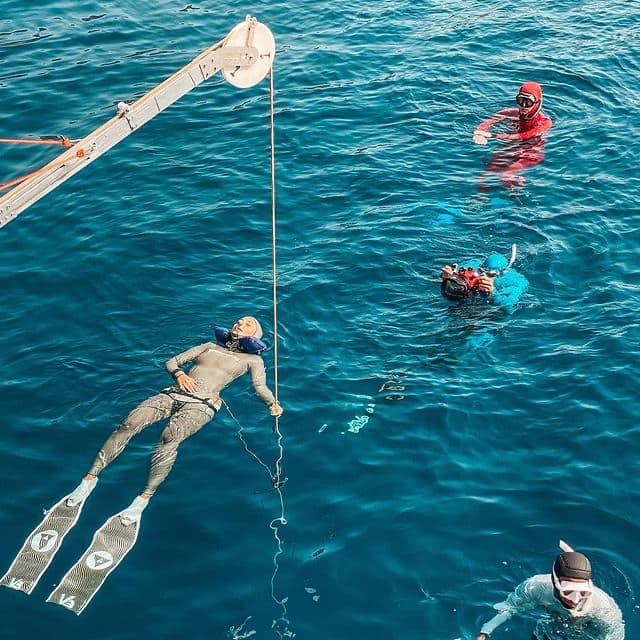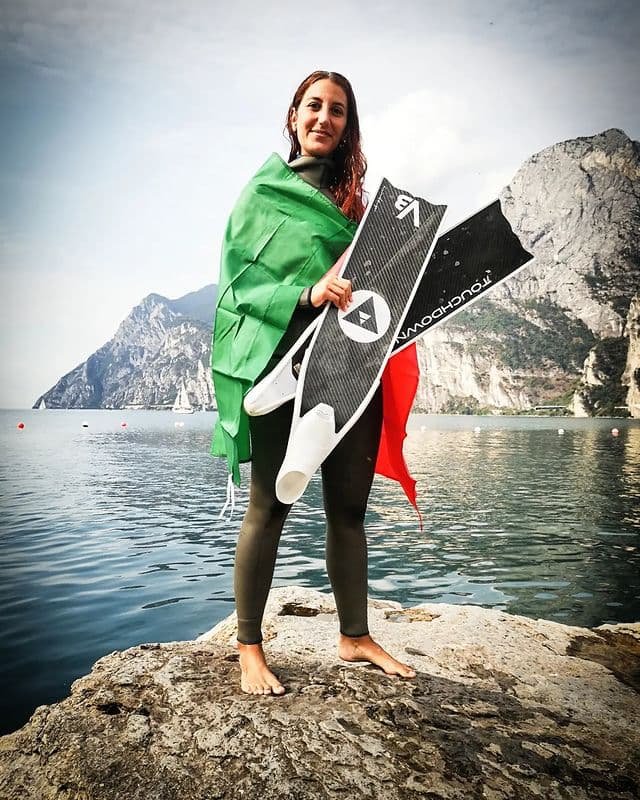Like in any sport, in freediving nothing beats structured training, a balanced diet made of real and whole food, and proper rest and recovery. Having said this, during the months of intense depth training and competitions, I personally use supplements, vitamins, and minerals to help my body recover faster.
Deep freediving generates a whole lot of stress on the body in the form of free radicals, due to cells working anaerobically, and this can make you feel exhausted after a dive session. Antioxidants are found in certain foods and may prevent some of the damage caused by free radicals by neutralizing them. These include nutrient antioxidants, vitamins A, C, and E, and copper, zinc, and selenium minerals. I personally take Vitamin C supplements.

I love taking power naps of a minimum of 20 minutes after a deep dive to reset the nervous system, and I make sure that I sleep as long as possible at night to give my body a chance to rest and heal. To make sure my sleep is optimal, and for increased energy and improved mood, I use magnesium supplements before going to sleep. Magnesium helps with muscular relaxation and gives crucial support for muscle energy production. To aid muscle recovery I use BCAA, or branched-chain amino acids: leucine, isoleucine, and valine. The benefits of BCAAs are mainly:
- Increase muscle growth
- Decrease muscle soreness
- Reduce exercise fatigue
I also drink a protein shake after each dive when I am out of the water to repair and rebuild my muscles after exercise.

For those deep dives in competition or in the tapering training phase, I take maltodextrin melted in the water a couple of hours ahead of a deep dive. Maltodextrin comes from the hydrolysis (of a segment) of wheat starch or maize, enabling smaller molecules to be made that are more easily digested by the body.
It is normally used:
- Before endurance exercise, maltodextrin helps increase your muscle glycogen reserves.
- During exercise, it is a quick energy source and doesn't make you sick thanks to its low sugar intensity.
- After endurance exercise, it helps rebuild your glucose reserves.

While the mammalian reflex in the form of spleen effect and blood shift is an incredible natural tool that the body uses to adapt to huge pressures, there are a number of downsides, namely immersion diuresis and build-up of lactic acid. Immersion diuresis is also known as the urge to pee… you know the joke right? I know two types of freedivers, those who pee in their wetsuit and those who lie about it… Jokes aside, due to the increase in blood in the chest cavity caused by the blood shift, the body senses this sudden increase and removes water from the blood to normalize it. This causes rapid synthesis of urine, causing freedivers to want to pee very badly, and it also leads to rapid dehydration.
Dehydration can result in headaches, decreased performance, irritability, confusion, fatigue, muscle cramps, reduction of thermoregulation, and decreased level of consciousness. But there is another concern: dehydration is a contributing risk factor for Decompression Sickness (DCS) as it will reduce the volume of blood plasma and perfusion of tissues, thickening the blood and reducing blood flow. As we often dive into locations where water comes in refillable water-filtered tanks, it’s good practice to read the mineral content of the water we drink. This is because the water is not only filtered but also goes through additional processes such as distillation, reverse osmosis, deionization, or carbon filtration to remove pathogens, chemicals, contaminants, nutrients, and minerals. As a result, it's sometimes also called 'demineralized water'. In those cases, it’s essential to replenish the minerals by adding electrolytes to your water bottle.
I tend to have blood checks after intense periods of training to keep my minerals under the monitor and in those intense months of competition I personally take Potassium supplements.
I started using BioAcidophilus a few years ago as I realized that the secret to a happy mind is having healthy guts. As months of diving in Egypt provide good chances of a delicate belly, I prefer to leave armored with live bacteria.